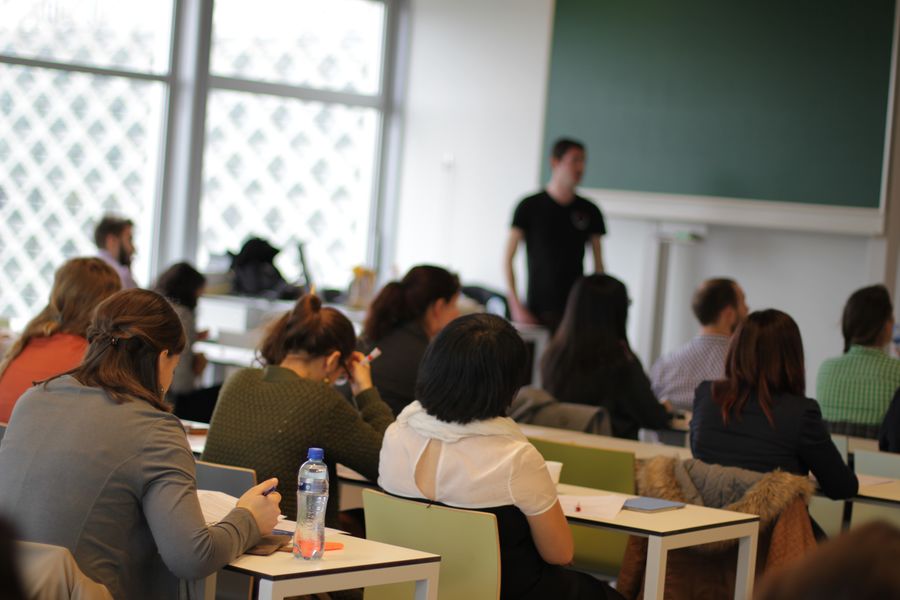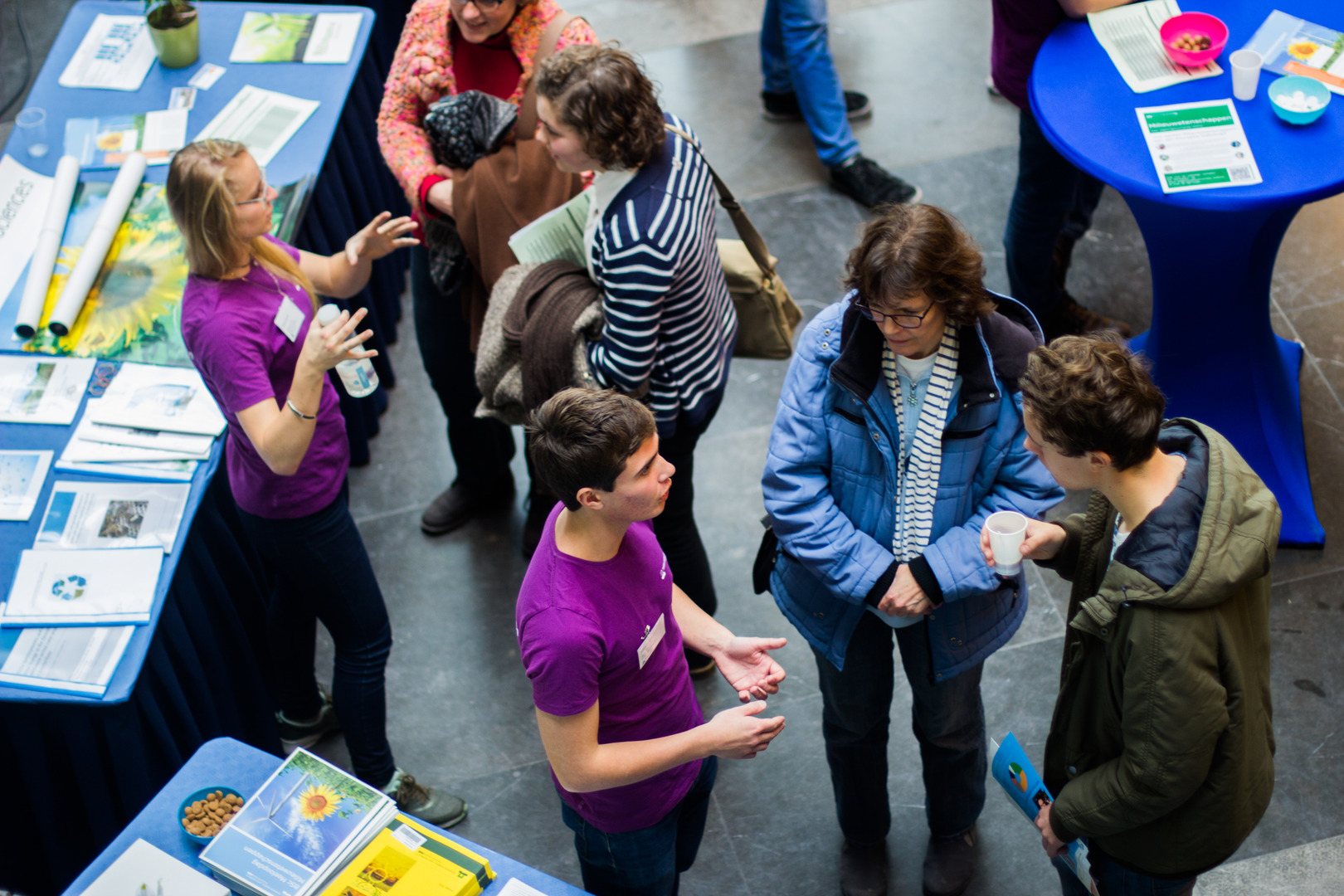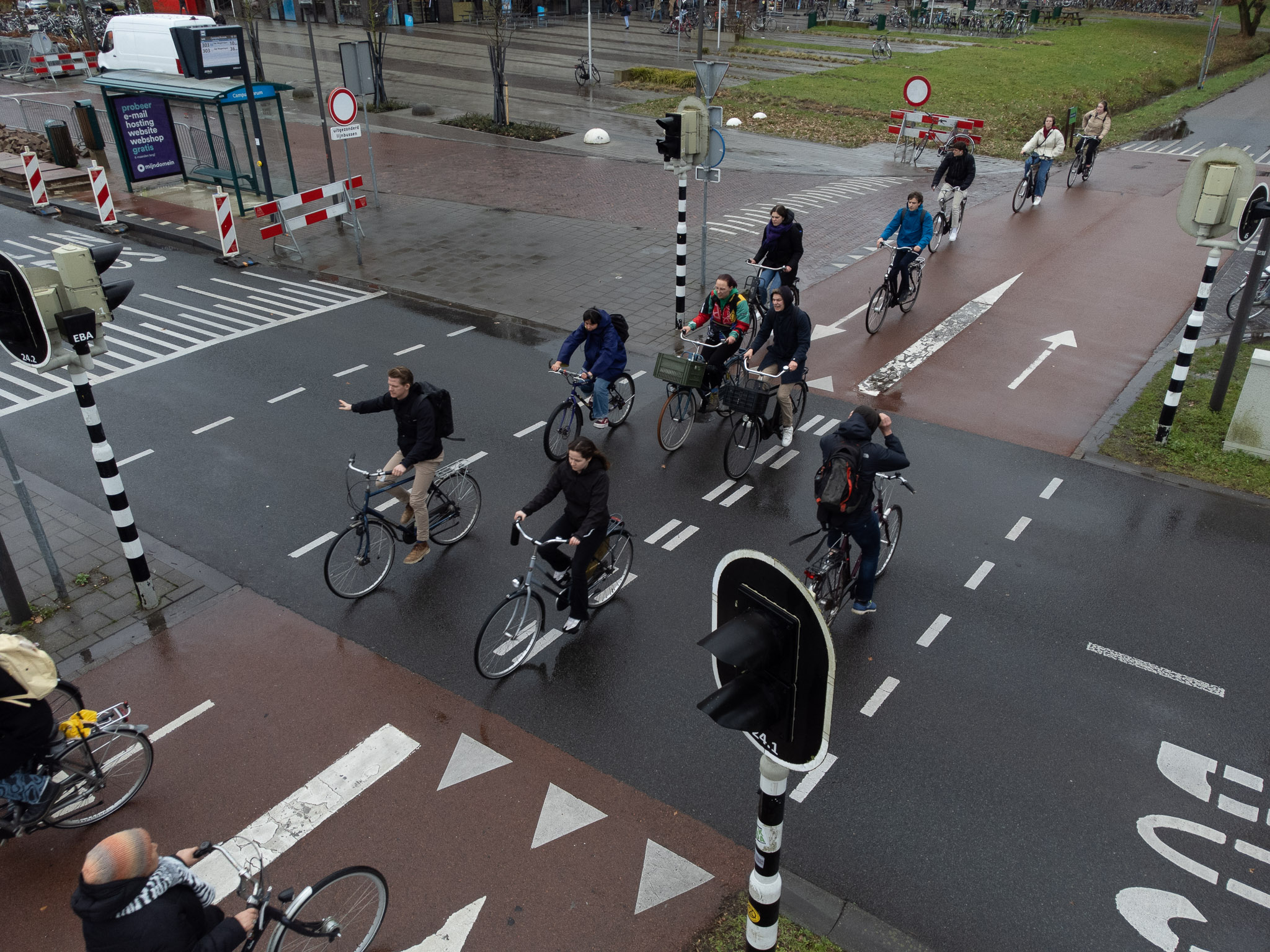Far fewer students are enrolling at Wageningen. The exact decline is not yet known, but applications were down by more than 9 per cent on last year and there were 16 per cent fewer AID freshers. In other words, there has clearly been a substantial drop. How bad is that?
‘It could even signal the end of some smaller societies’
Daan Smit, president of WSV Ceres
‘The decline is bad news for student life. If fewer students come to Wageningen, there will be a smaller pool for the student societies to fish from. Membership numbers will fall and it will be even harder to find people for board and committee work and to keep the societies running properly. We haven’t got to that stage yet but if this trend continues for several years, we’ll have to start thinking about where to make cuts. It could even signal the end of some smaller societies, which would be a real shame. The societies are a large part of Wageningen student life. Being a member of a society can enrich your university experience and personal development. That is why we need to work with other societies, the municipality and the university to see what can be done.’
‘Someone from Utrecht is not the same as someone from Wageningen’
Ingrid Hijman, head of the Student Service Centre
‘The world will always need more Wageningen people, given how many problems it is facing. Other universities are tackling our themes but at the end of the day, someone from Utrecht is not the same as someone from Wageningen. To put it bluntly, in Utrecht they study a phenomenon and write a report, but in Wageningen they will have spoken to various stakeholders too and they will include at least one paragraph about the applicability. Other universities design complex policy plans for well-being. We don’t design policy plans, we get down to work. That can-do mentality is typical Wageningen. We are smart, practical, intrinsically inquisitive problem solvers.
‘What needs to change? Perhaps we should make our admission requirements less strict. For example, at present you need to have passed physics, maths and biology to study Soil, Water & Atmosphere, but how motivated you are is more important than whether you did the right subjects at school. We are excluding a lot of people unnecessarily because of some choice they made as a teenager.’
‘We are investing more energy in student recruitment. Perhaps we waited too long for this’
Dick de Ridder, Dean of Education
‘Of course, WUR has grown immensely in the past 10 to 15 years, so a bit of shrinkage isn’t a problem. But it is happening rather faster than we expected.
‘We educate people to be capable of introducing the changes this world needs, and more such people are required than ever. We also excel at education, which is at the heart of what we do. It’s no coincidence we have been the top university 20 years in a row according to the University Guide. It’s a shame this is becoming less of a factor for prospective students. And fewer students means less government funding. Coming on top of the cutbacks we already had to make, this could be a real challenge for the chair groups.
‘How can we turn the tide? We have critically reviewed our degree programmes in a portfolio analysis, we’re working on a more coherent story about Wageningen for prospective students and we are investing more energy in student recruitment. Perhaps we waited too long for this, but now we have set everything in motion.’
‘It’s hardly surprising the intake is falling as that could be predicted from demographic trends’
Bart van As, director of Idealis
‘Wageningen is one of the top universities internationally and is consistently voted the best university in the Netherlands by students. It’s hardly surprising to see the intake falling, as that could be predicted from demographic trends. The wider developments are more concerning. The current political environment means less attention is being paid to urgent issues that WUR is an expert on, such as climate change, food security and biodiversity. In addition, international students feel less welcome and other universities are copying our degree programmes, while the total number of students is declining. That is putting pressure on WUR’s unique position.
‘Despite all this, I have confidence in the university’s resilience. Here at Idealis, we are enhancing Wageningen’s appeal as a university town by charging the lowest room rents in the Netherlands and by making sure every student is offered a room in their first year at university. That is unique in the Netherlands, especially in these times of accommodation shortages.’
‘We now have to fund a larger proportion of the joint courses’
Marjolijn Coppens, Biology programme director
‘Any degree programme would prefer a stable intake. Rapid growth is not good as that leads to a big increase in the workload. But you don’t want a big decrease either because that’s financially challenging and you don’t want to have to make people redundant.
‘Fortunately, the numbers for Biology have stayed stable, but we are still affected financially because other programmes have seen a fall so we now have to fund a larger proportion of the joint courses. Why has the intake for Biology stayed the same while other degrees have shrunk? I can’t really put my finger on it. We’re all doing our best and all the programmes are good.’
‘It might be quieter in the gym’
Henri ten Klooster, head of De Bongerd Sports Centre
‘Every year, between 54 and 57 per cent of new students purchase a sports pass. The falling intake probably won’t immediately have a major effect on the sports clubs because that decrease is divided over 31 clubs. But if we see substantial falls several years in a row, that could endanger the existence of some sports clubs. We have now set an explicit lower limit for student sports club memberships in collaboration with the student sports association Thymos. A club has to have at least 15 members to qualify for support.
‘On the positive side, about 60 to 65 per cent of the students with a sports pass use the gym. So it might be a bit quieter now thanks to the falling intake.’

 Photo Marte Hofsteenge
Photo Marte Hofsteenge 

